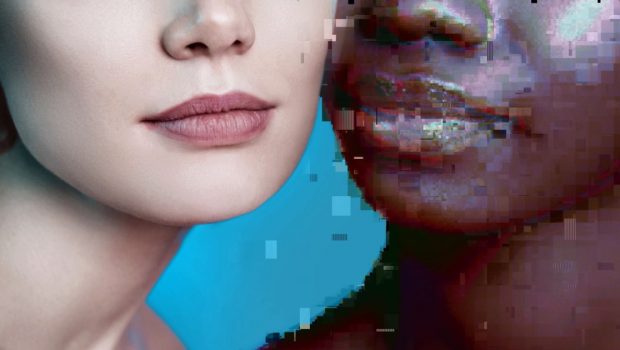Who is Shudu? AI Model Sparks Debate Around Technology, Race
Shudu has been booked across the modeling industry, landing some illustrious gigs for brands like BMW, Louis Vuitton and Hyundai — and some people are furious.
Shudu is a digital model who was created through artificial intelligence in 2017 by the world's first all-digital modeling agency, The Diigitals. Critics say her creator and The Diigitals founder, Cameron-James Wilson, is continuing to take opportunities away from real Black models in the industry.
"She’s been 'hired' across the industry which means her creators, white men, NOT a Black woman, are the ones paid," author Vanessa Angélica Villarreal wrote in a viral tweet on Dec. 7. "And companies get to say they ran Black content without having to work with or hire Black people."
The Diigitals did not respond to TODAY.com's requests for comment. Its website says their goal is to provide "a portfolio of diverse digital identities (that) can be appreciated." Shudu is one of at least seven AI models at the company. As of now, four of them are Black, one is Nordic, one is Asian and another is extraterrestrial.
AI images are generated from photographs of real people that are inputted into a system that breaks down their features into numerical data points it later adds together to create different digital images. The Diigitals latest development, Kami, touted as the "world’s first virtual influencer with Down syndrome," was developed in May from pictures of more than 100 real women with Down syndrome, according to Ad Week.
Companies get to say they ran Black content without having to work with or hire Black people."
Vanessa Angélica Villarreal
Shudu’s presence has sparked controversy before. In February 2018, teen magazine Affinity posted a poll on Twitter asking people whether they think Shudu is a good idea. More than 23,000 people voted and 83.5% agreed the AI model was a bad idea. One person commented under the poll saying, “We are not a ‘trend’ or a ‘movement,’” referring to cultural appropriation of racial minorities.
“Creating a CGI black woman and exploiting, fetishizing, and treating black skin and features as a trend instead of actually hiring and paying black models is gross and bad,” another person said.
In March 2018, culture critic and Northwestern University professor Lauren Michele Jackson wrote about the controversy surrounding Shudu in The New Yorker and spoke to Wilson about the criticism regarding race. He told Jackson that he invites the “debate and discussion.”
“I honestly think that those who have really taken the time to speak to me about my motivations understand that it wasn’t this big scheme to profit off of someone,” he told her at the time.
In a 2021 interview with Business Insider, The Diigitals founder also shared that the company works with real models to create the AI versions.
“We’ve partnered with models and we turn them into Shudu,” he said. “They do the pose and we drop her in over the top of them. We also digitize the models as themselves for other projects.”
Wilson said Shudu and other AI models’ rates are “comparable to the rates of real-life models” but there are “extra fees” depending on how much work his team has to do to meet booking requests. TODAY could not confirm how much money the real models who pose as Shudu’s stand-ins make for each job.
Shudu is more than an image and likeness — she also has her own voice. Writer Ama Badu voices Shudu in interviews and manages her Instagram page. On The Diigtals website, Badu shared how she approaches creating the AI model's voice and why she thinks Shudu could be a positive force in the industry.
"I see Shudu and digital models as a form of artistic expression. ... We can now create models to look like anything and anyone we want. Do you know what that does for the little Ama’s (sic) around the world, to see images of women who are as light or as dark, as slender or as curvy, as beautifully flawed as they are both in real and digital women? What a wow!" she wrote.
But even Badu acknowledges that "some may not use these (technological) changes for good."
"The more I think about it the more questions I have," she wrote. "There is so much cost and waste within the fashion and beauty industry, could this be a way to minimize some of that or increase it? Will digital models replace and take away opportunities from real models or will they encourage even more diversity? Will they be used to further perpetuate the unrealistic standards of beauty that have existed for far too long or will they change it? None of us can have the answers to these questions right now but artists should not allow the fear of the unknown to stifle their work."
Mari Galloway, an AI and cyber security expert who's also a Black woman, tells TODAY.com that she predicts digital models will increase in frequency and popularity.
“I see this as the way of the future,” she says. “I do think it takes away from those Black women who are models that are trying to make it in the industry because now we can just create something that we think looks like what they look like.”
As of Dec. 13, the viral tweet about Shudu had a combined 62,000 retweets and likes and some people have responded with their own disapproval of the digital model.
"Jesus, this is a new low for AI 'artists' and they were already at the bottom," one person wrote, with a popular service rendering AI self-portraits sparking its own controversy recently.
"Black folks dragged the creator 4 years ago when he first revealed this mess," another said.
"Why completely render a model, spend the time and resources to do digital blackface when you can just...hire a model and photographer AND ensure actual BIPOC folks can get jobs," some else said.
Galloway says there's potential for AI models to "be a good thing," but also sees the danger.
"I see this as a potentially dangerous thing to do. Because now you're further saying to minority women, Black women, that you have to look like this to be beautiful, to be considered a model.
"Now we're creating what we think beauty looks like. And that's very dangerous."
Related:









Gloss